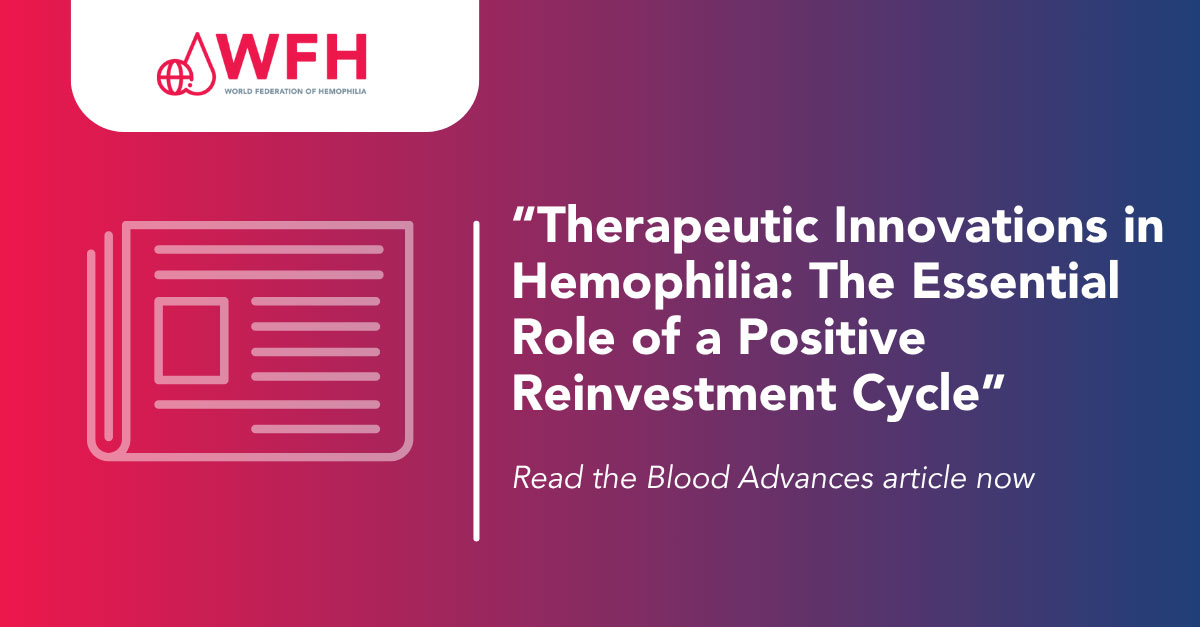A new article in Blood Advances, “Therapeutic Innovations in Hemophilia: The Essential Role of a Positive Reinvestment Cycle”—written by World Federation of Hemophilia (WFH) Vice President, Medical, Glenn Pierce, MD, PhD, and WFH Medical Member Cedric Hermans, MD—highlights these issues and recommends a path forward.
Hemophilia stands out among rare genetic diseases for its significant therapeutic advancements, closely tied to substantial financial investments. Key factors driving this progress include severe hemorrhagic consequences from an early age, its impact on royal families, the HIV and hepatitis C contamination tragedies, the identification of FVIII and FIX genes, and advancements in biotechnology. Maintaining low, measurable concentrations of FVIII or FIX in the blood has proven pivotal in improving patient outcomes. With reinvestments from biopharmaceutical partners, revolutionary options, including gene therapy, have emerged. However, this cycle of innovation and investment, essential for curing all patients worldwide, faces potential threats. Equally essential is expanding access and revenue by turning low-income countries into viable markets.
“Therapeutic Innovations in Hemophilia: The Essential Role of a Positive Reinvestment Cycle” aims to highlight the critical importance of investing in hemophilia treatment and research, a topic of concern for all stakeholders within the hemophilia community. To read the full article in Blood Advances, click here.












